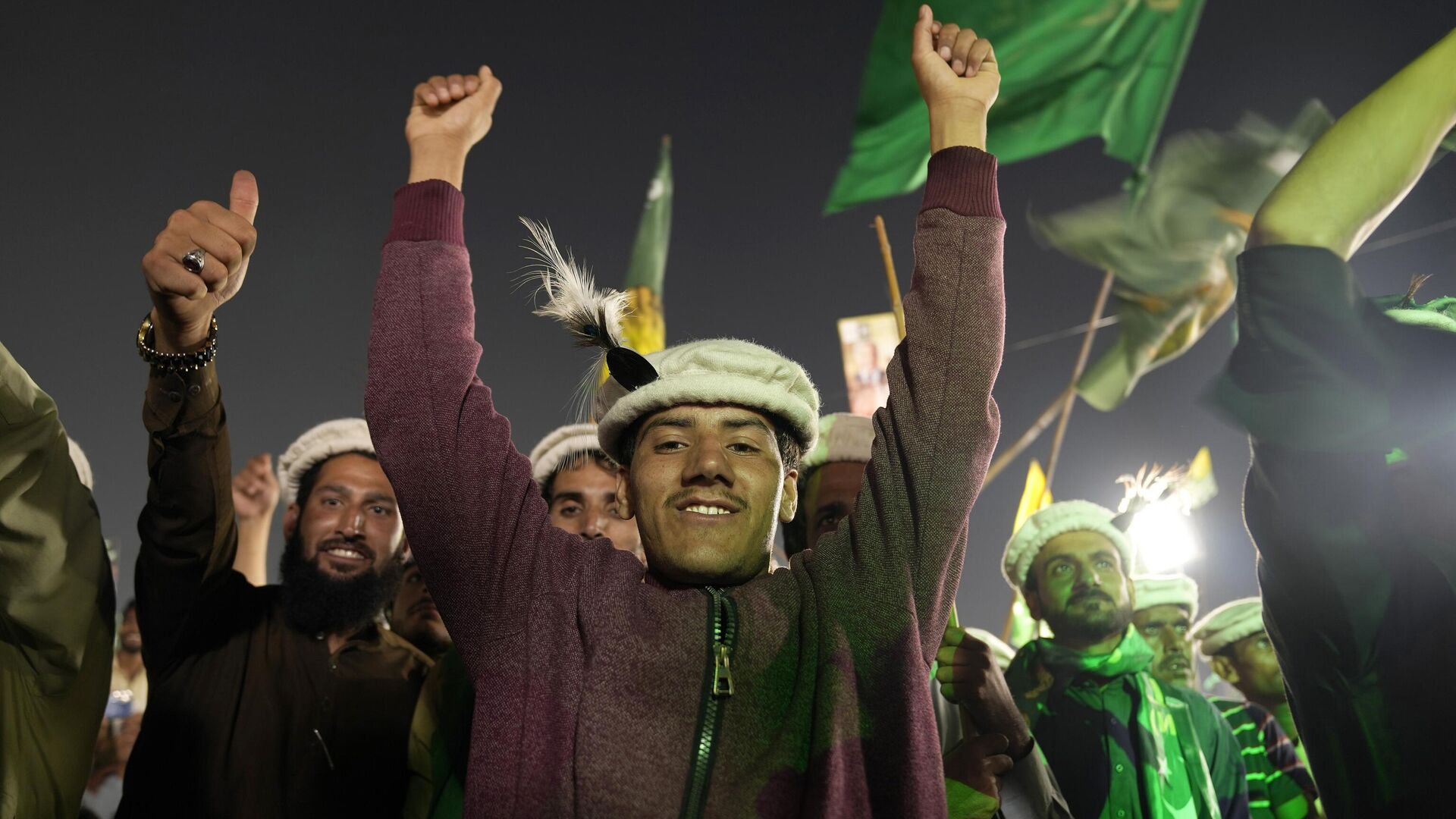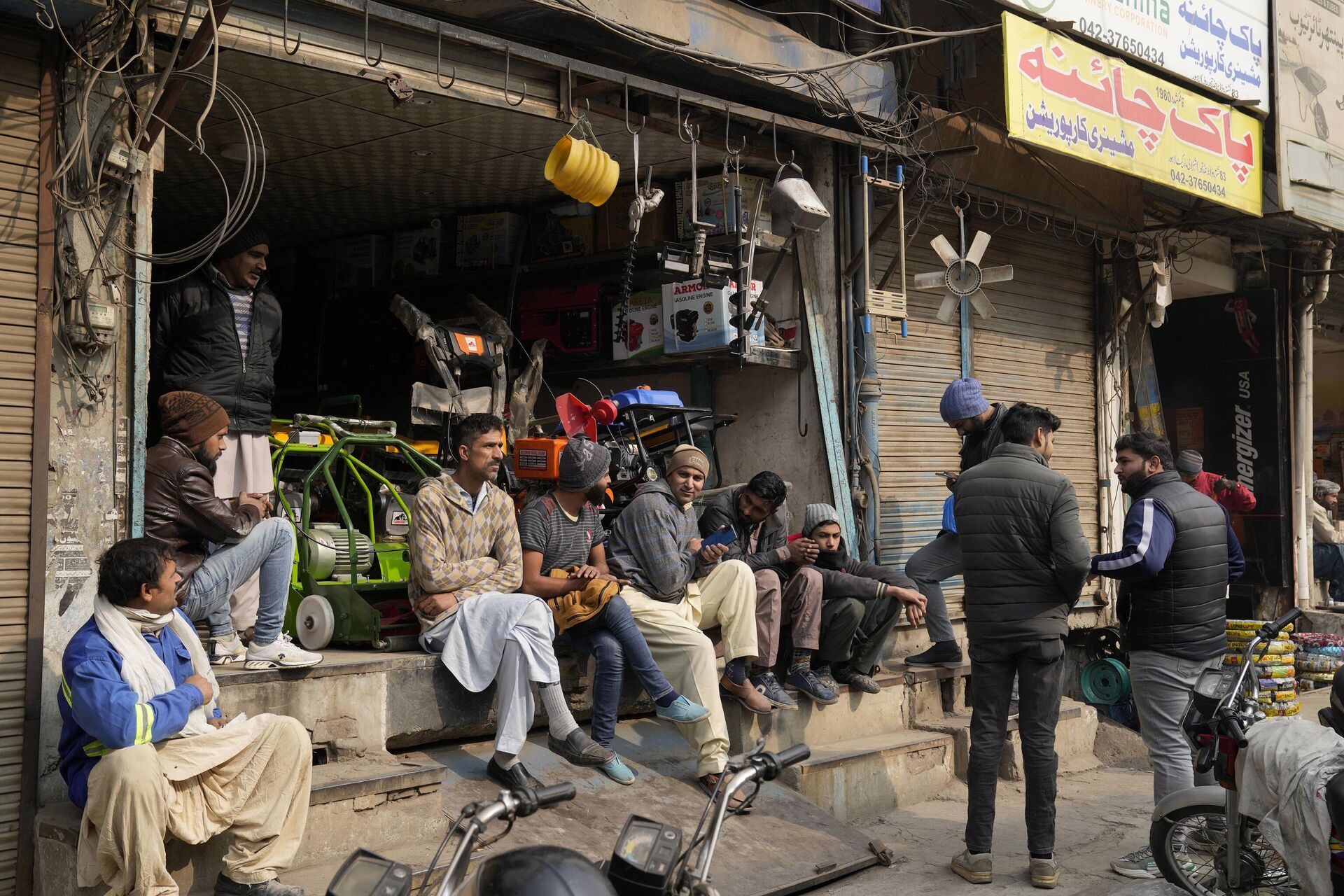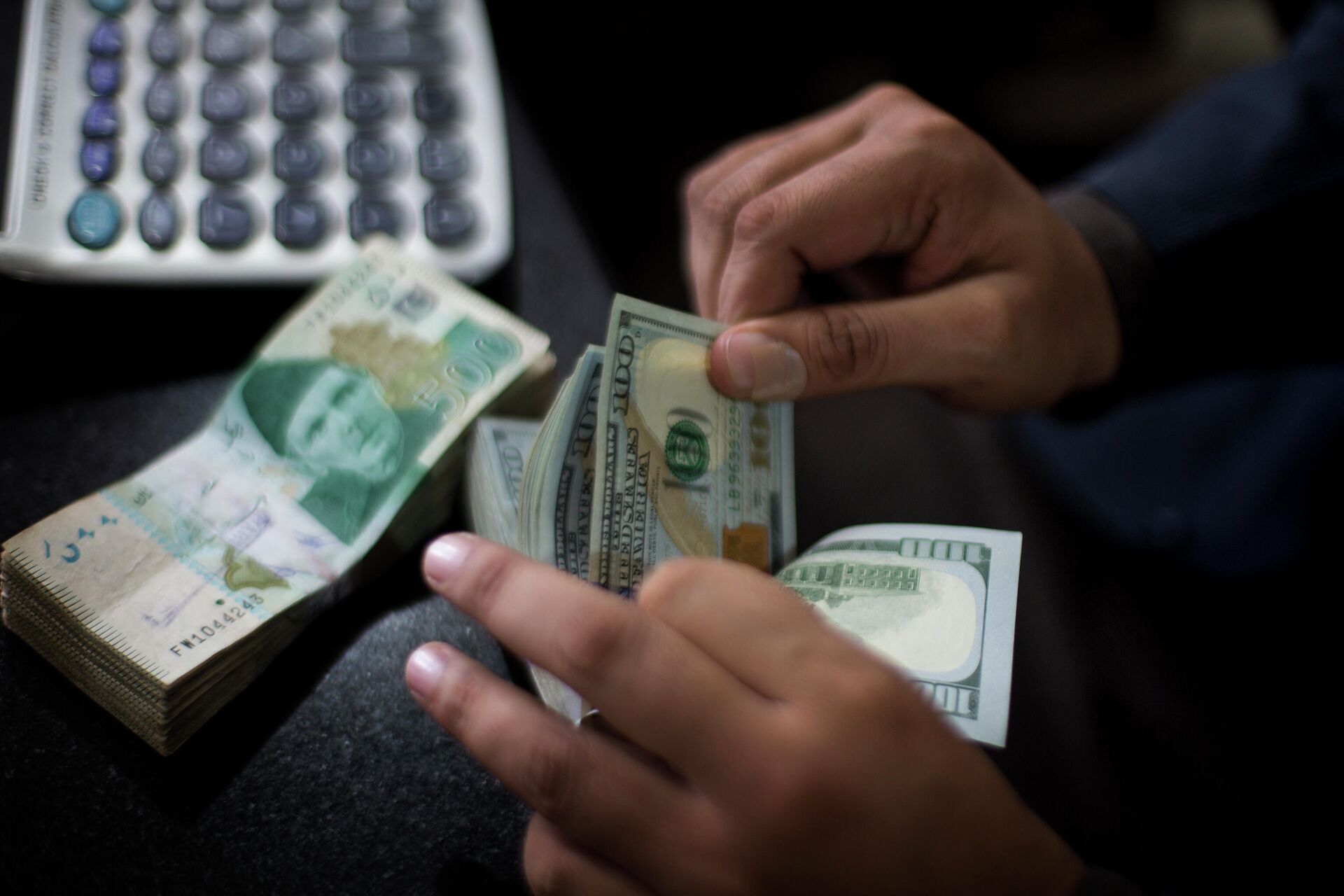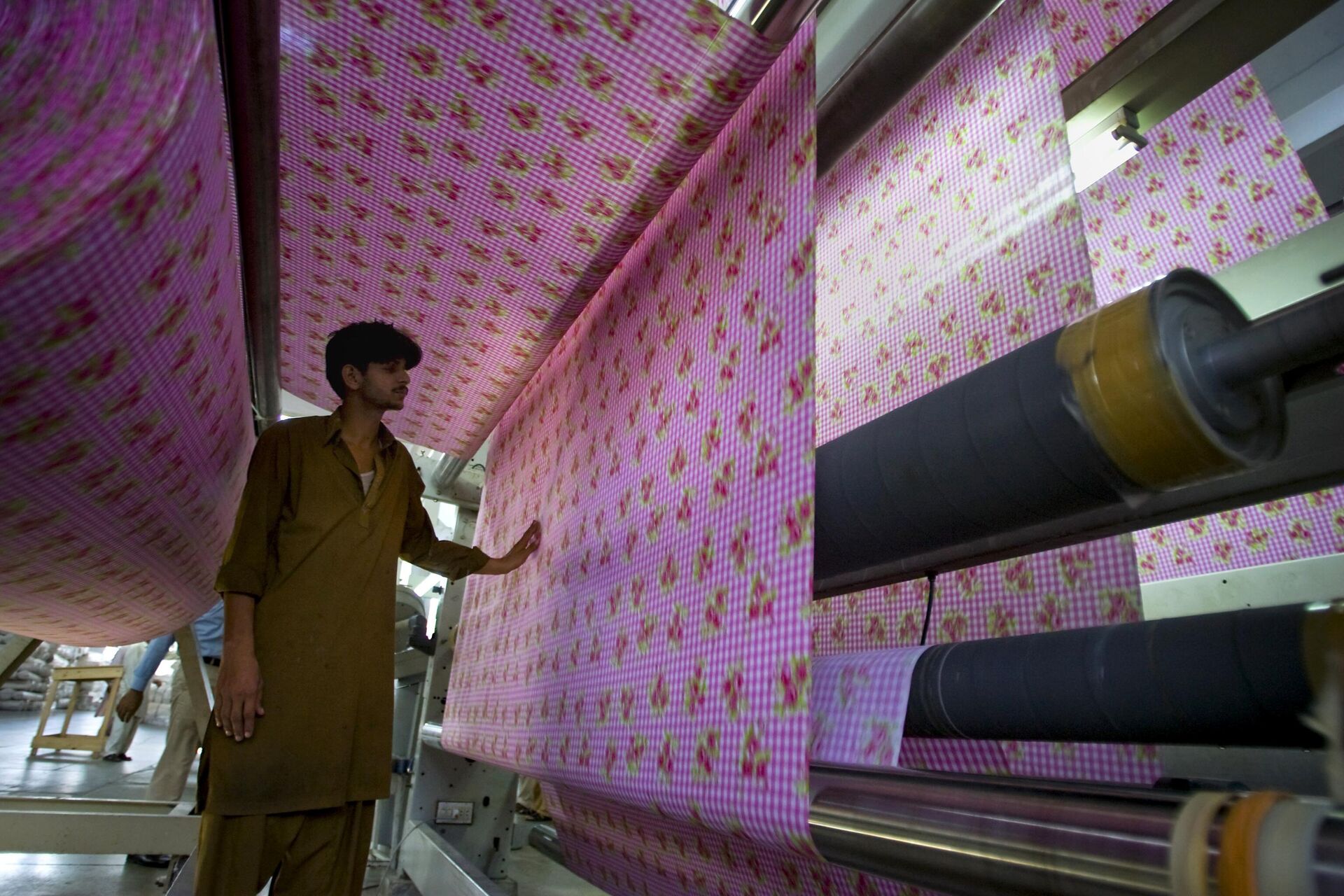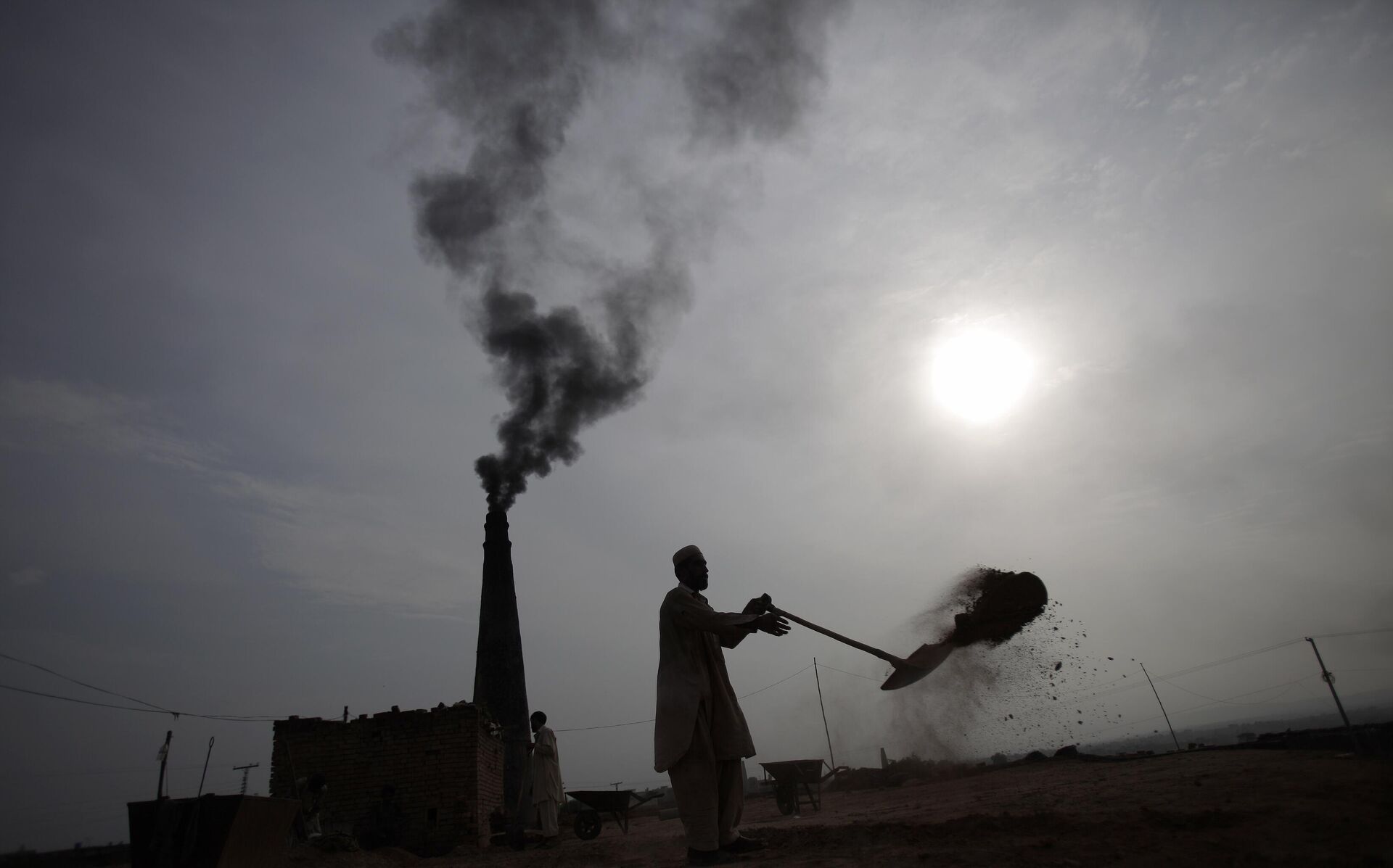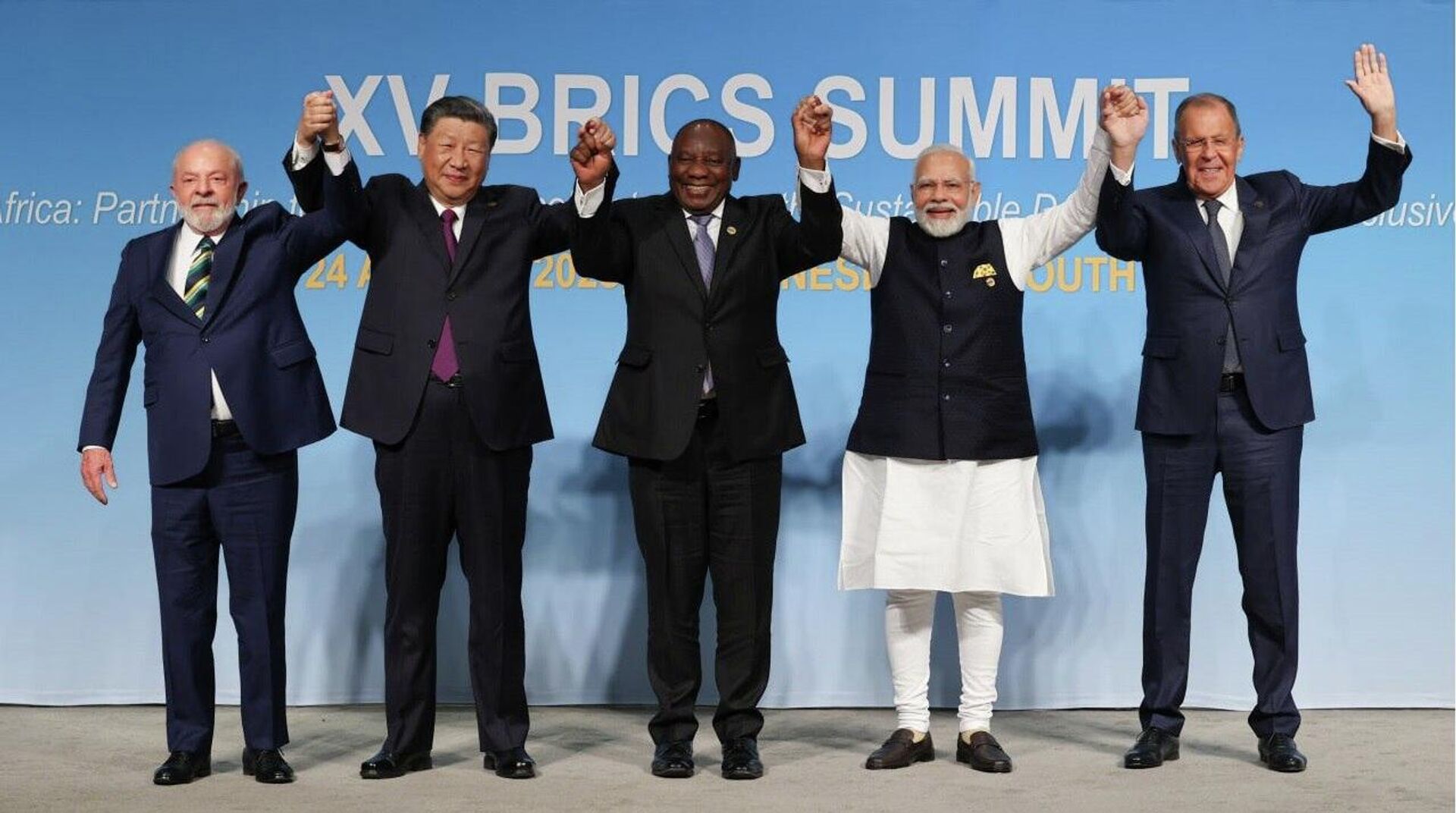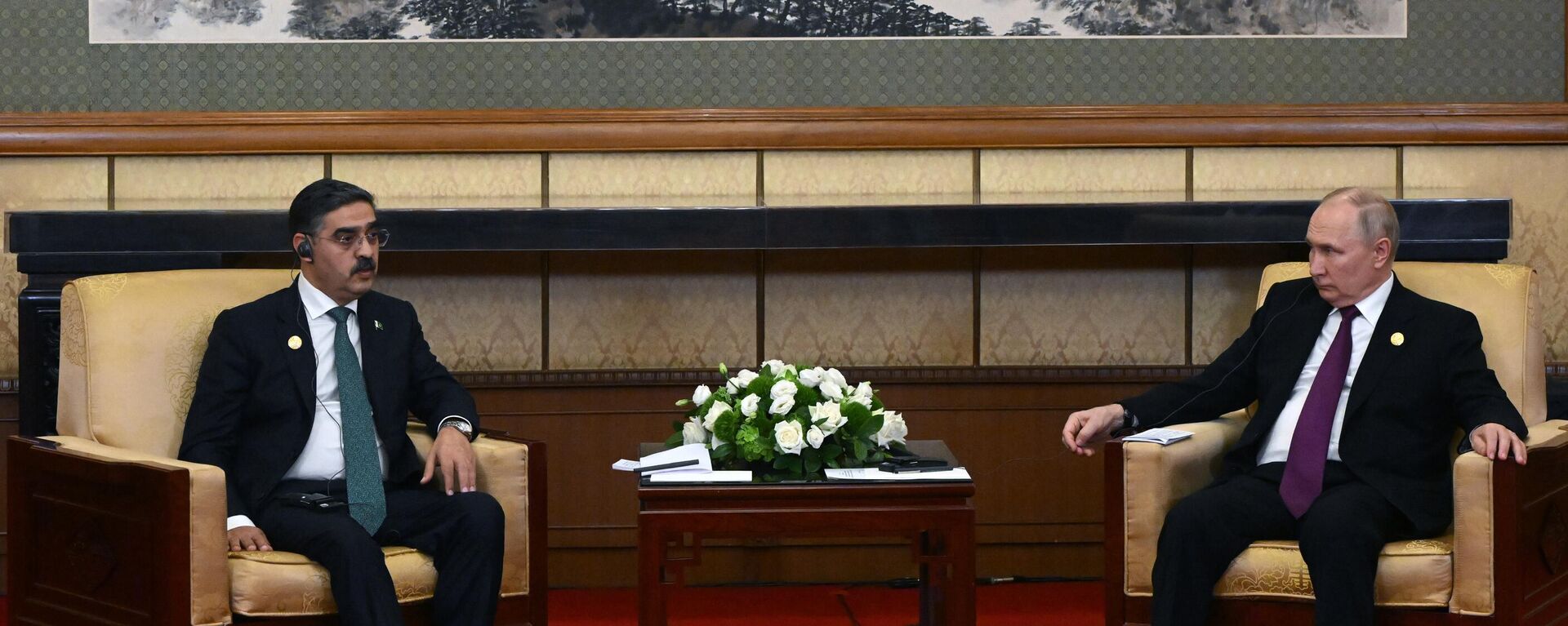https://sputniknews.in/20240112/from-imf-austerity-to-brics-prosperity-can-joining-the-bloc-be-pakistans-economic-lifeline-6157402.html
Why Can't IMF Help Pakistan's Economic Lifeline?
Why Can't IMF Help Pakistan's Economic Lifeline?
Sputnik India
The board of the International Monetary Fund on Thursday approved a loan of about $700 million to Pakistan as part of a $3 billion bailout. As Pakistan's... 12.01.2024, Sputnik India
2024-01-12T19:42+0530
2024-01-12T19:42+0530
2024-01-14T21:07+0530
pakistan
brics
china
global economy
economic crisis
economic challenges
rising economies
imf loan
debt restructuring
inflation
https://cdn1.img.sputniknews.in/img/07e7/0b/02/5203972_0:160:3072:1888_1920x0_80_0_0_ca59ca1bd8b11930648dd1dd1dcdf21d.jpg
Western international organisations, such as the International Monetary Fund (IMF), tightened their grip on non-Western economies. Examining the IMF's top borrowers in 2023 raises concerns about the efficacy of their 'financial aid'.As of June 2023, Pakistan's external debt surged to $124.3 billion, a stark contrast to $37.2 billion in June 2006. With over half of the national budget dedicated to debt repayment, equivalent to 105% of total tax revenue, resources for public welfare and developmental projects are severely limited after fulfilling debt obligations.Despite being an IMF member since 1950 and engaging in 24 arrangements with the organization, Pakistan's economy is currently at its lowest point.Some critics go so far as to call organisations like the IMF 'post-colonialism'. John Perkin's semi-autobiography, Confessions of an Economic Hitman, highlights how organisations like the IMF aim to make non-Western countries dependent on them so that they can control them, their resources and their political institutions.In Pakistan, continued reliance on this pattern of borrowing from the IMF has hampered the government's ability to secure additional loans from both local sources and foreign financial institutions, given Pakistan's high debt-to-GDP ratio and limited repayment capacity. This has already adversely affected spending commitments and priorities, including salaries, pensions, defence spending and others.No Free LunchWhen the IMF agrees to lend money to a developing country like Pakistan, it demands major structural reforms. These reforms often lead to social unrest and have a negative impact on public welfare. Tight loan conditions reduce economic growth, deepen and prolong financial crises, create hardship for the poorest people in borrowing countries and strengthen local opposition to the IMF.There is another critical effect of the IMF on developing countries - dependency.As of April 2023, Pakistan's reported foreign exchange reserves hover around $4 billion, which is insufficient to pay even one month's import bill. But the huge foreign debt is putting the country under significant repayment pressure, as Pakistan is expected to repay $77.5 billion in foreign debt between April 2023 and June 2026. How it will manage this is a big mystery.This amount is to be paid not only to the IMF, but also to other major lenders to Pakistan's economy, such as Chinese financial institutions, private creditors and Saudi Arabia.But while China has lent billions to Pakistan, it has not dictated any particular economic model or policy changes to Pakistan. In fact, China has helped Pakistan set up many mega-projects such as the Gwadar port, the Free Trade Zone, dozens of power plants, the construction of inter-city highways, coal factories, etc. This is in sharp contrast to Pakistan's long history of following the IMF.More Devaluation, More MiseryAccording to Atif Rehman Mian, a Pakistani-American economist at Princeton University, the government is already implementing policies dictated by the IMF, including restrictions on imports of raw materials needed for production and export. These policies will eventually reduce the country's productive capacity, and a lower GDP will make it harder to pay back the debt, leading to more devaluation, more borrowing and more misery.Among many other reforms, the IMF had ordered Pakistan to raise electricity and gas prices, causing massive outrage among civilians and businessmen across the country.The Fund also asked Pakistan to increase interest rates. It had also asked the authorities to gradually reduce subsidies in the power industry, as well as salaries and pension costs, as pension reform is also one of the IMF's top priorities. The average Pakistani is struggling with inflation, poor quality of life and economic uncertainty.Could BRICS Be the Way Out for Pakistan?If Pakistan were to join BRICS, it could potentially benefit in a number of ways, including reduced reliance on IMF loans.BRICS stands for Brazil, Russia, India, China and South Africa, representing 41% of the world's population and 24% of global GDP. More countries will join BRICS in 2024, leading to a global financial shift and potentially less reliance on the US dollar.Several Pakistani political analysts told Sputnik India that BRICS could open up economic opportunities for Pakistan, as it could trade with other member states and benefit from their growing economies. Pakistan's exports could find new markets within the BRICS framework.Sharing his views on the matter, financial advisor Javed Sheikh said that BRICS countries are emerging giant economies and they have improved their country, economic conditions, manufacturing and found markets for themselves by joining the bloc.Moreover, becoming a member of BRICS could provide Pakistan with an opportunity to diversify its diplomatic relations.As the IMF continues to push Pakistan into a deep hole with its loans, the conditions and austerity measures that come with them pose serious challenges to the country's crumbling economy. The country should work towards striking a balance between short-term stabilisation and long-term development goals for sustainable economic growth. Membership of BRICS could provide Pakistan with a much-needed advantage.
https://sputniknews.in/20231018/take-that-biden-pakistan--russia-bolster-ties-at-beijing-forum-4898853.html
pakistan
china
south asia
saudi arabia
Sputnik India
feedback.hindi@sputniknews.com
+74956456601
MIA „Rossiya Segodnya“
2024
Aneela Rashid
https://cdn1.img.sputniknews.in/img/07e6/0c/0d/74548_0:0:485:484_100x100_80_0_0_821526e967ae85d041e2d30ee34fa1de.jpg
Aneela Rashid
https://cdn1.img.sputniknews.in/img/07e6/0c/0d/74548_0:0:485:484_100x100_80_0_0_821526e967ae85d041e2d30ee34fa1de.jpg
News
en_IN
Sputnik India
feedback.hindi@sputniknews.com
+74956456601
MIA „Rossiya Segodnya“
Sputnik India
feedback.hindi@sputniknews.com
+74956456601
MIA „Rossiya Segodnya“
Aneela Rashid
https://cdn1.img.sputniknews.in/img/07e6/0c/0d/74548_0:0:485:484_100x100_80_0_0_821526e967ae85d041e2d30ee34fa1de.jpg
pakistan, brics, china, global economy, economic crisis, economic challenges, rising economies, imf loan, debt restructuring, inflation, south asia, saudi arabia
pakistan, brics, china, global economy, economic crisis, economic challenges, rising economies, imf loan, debt restructuring, inflation, south asia, saudi arabia
Why Can't IMF Help Pakistan's Economic Lifeline?
19:42 12.01.2024 (Updated: 21:07 14.01.2024) The board of the International Monetary Fund on Thursday approved a loan of about $700 million to Pakistan as part of a $3 billion bailout. As Pakistan's foreign debt skyrockets, the country faces serious financial vulnerability.
Western international organisations, such as the International Monetary Fund (IMF), tightened their grip on non-Western economies. Examining the IMF's top borrowers in 2023 raises concerns about the efficacy of their 'financial aid'.
Argentina topped the list with a loan of $46 billion, followed by Egypt at $18 billion, Ukraine at $12.2 billion, Ecuador at $8.2 billion, and Pakistan at the fifth position with $7.4 billion. Despite receiving funds from the IMF, these countries continue to face economic struggles, prompting questions about the true impact of IMF assistance.
As of June 2023, Pakistan's external debt surged to $124.3 billion, a stark contrast to $37.2 billion in June 2006. With over half of the national budget dedicated to debt repayment, equivalent to 105% of total tax revenue, resources for public welfare and developmental projects are severely limited after fulfilling debt obligations.
Despite being an IMF member since 1950 and engaging in 24 arrangements with the organization, Pakistan's economy is currently at its lowest point.
Some critics go so far as to call organisations like the IMF 'post-colonialism'. John Perkin's semi-autobiography, Confessions of an Economic Hitman, highlights how organisations like the IMF aim to make non-Western countries dependent on them so that they can control them, their resources and their political institutions.
In Pakistan, continued reliance on this pattern of borrowing from the IMF has hampered the government's ability to secure additional loans from both local sources and foreign financial institutions, given Pakistan's high debt-to-GDP ratio and limited repayment capacity. This has already adversely affected spending commitments and priorities, including salaries, pensions, defence spending and others.
When the IMF agrees to lend money to a developing country like Pakistan, it demands major structural reforms. These reforms often lead to social unrest and have a negative impact on public welfare. Tight loan conditions reduce economic growth, deepen and prolong financial crises, create
hardship for the poorest people in borrowing countries and strengthen local opposition to the IMF.
There is another critical effect of the IMF on developing countries - dependency.
Speaking to Sputnik India, Javed Sheikh, a Lahore-based financial advisor to a development project, said, "There's a risk of accumulating more debt with IMF programs for Pakistan. While the immediate financial relief is crucial, the country needs to carefully manage its debt to avoid long-term economic vulnerabilities. IMF becomes a bandaid rather than a cure."
As of April 2023, Pakistan's reported foreign exchange reserves hover around $4 billion, which is insufficient to pay even one month's import bill. But the huge foreign debt is putting the country under significant repayment pressure, as Pakistan is expected to repay $77.5 billion in foreign debt between April 2023 and June 2026. How it will manage this is a big mystery.
This amount is to be paid not only to the IMF, but also to other major lenders to Pakistan's economy, such as Chinese financial institutions, private creditors and Saudi Arabia.
But while
China has lent billions to Pakistan, it has not dictated any particular economic model or policy changes to Pakistan. In fact, China has helped Pakistan set up many mega-projects such as the Gwadar port, the Free Trade Zone, dozens of power plants, the construction of inter-city highways, coal factories, etc. This is in sharp contrast to Pakistan's long history of following the IMF.
More Devaluation, More Misery
According to Atif Rehman Mian, a Pakistani-American economist at Princeton University, the government is already implementing policies dictated by the IMF, including restrictions on imports of raw materials needed for production and export. These policies will eventually reduce the country's productive capacity, and a lower GDP will make it harder to pay back the debt, leading to more devaluation, more borrowing and more misery.
Among many other reforms, the IMF had ordered Pakistan to raise electricity and gas prices, causing massive outrage among civilians and businessmen across the country.
The Fund also asked Pakistan to increase interest rates. It had also asked the authorities to gradually reduce subsidies in the power industry, as well as salaries and pension costs, as pension reform is also one of the IMF's top priorities. The average Pakistani is struggling with inflation, poor quality of life and economic uncertainty.
Tess Woolfenden, Senior Policy Officer Head of Policy at Debt Justice, said: 'The IMF is continuing its flawed strategy of bailing out previous lenders while imposing austerity on the people of Pakistan. This perpetuates Pakistan's decades-long debt crisis, which will be exacerbated by the impacts of rich people's climate change, such as the devastating floods in 2022. Instead, Pakistan needs debt cancellation from all its creditors, as well as grant based funding to deal with the impacts of climate change.
Could BRICS Be the Way Out for Pakistan?
If Pakistan were to join BRICS, it could potentially benefit in a number of ways, including reduced reliance on IMF loans.
BRICS stands for Brazil, Russia, India, China and South Africa, representing 41% of the world's population and 24% of global GDP. More countries will join BRICS in 2024, leading to a
global financial shift and potentially less reliance on the US dollar.
Several Pakistani political analysts told Sputnik India that BRICS could open up economic opportunities for Pakistan, as it could trade with
other member states and benefit from their growing economies. Pakistan's exports could find new markets within the BRICS framework.
Sharing his views on the matter, financial advisor Javed Sheikh said that
BRICS countries are emerging giant economies and they have improved their country, economic conditions, manufacturing and found markets for themselves by joining the bloc.
"Certainly, the economic prosperity that comes with joining BRICS can minimise unemployment, poverty and illiteracy in Pakistan. It will create job opportunities for millions of Pakistanis and over time this will help pay off the huge debt that the country currently has," the financial expert told Sputnik India.
Moreover, becoming a member of BRICS could provide Pakistan with an opportunity to diversify its diplomatic relations.
A former senior diplomat and political observer based in Islamabad, Khalid Shikari, told Sputnik India, "BRICS membership could increase Pakistan's geopolitical leverage by providing a platform to work with other emerging powers on global issues. Given that China really wants Pakistan to join and Russia and South Africa support this idea, I don't see why Pakistan should not benefit from being part of this transformative bloc."
As the IMF continues to push Pakistan into a deep hole with its loans, the conditions and austerity measures that come with them pose serious
challenges to the country's crumbling economy. The country should work towards striking a balance between short-term stabilisation and long-term development goals for sustainable economic growth. Membership of BRICS could provide Pakistan with a much-needed advantage.
